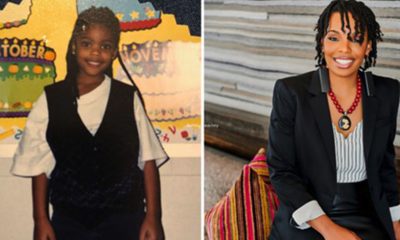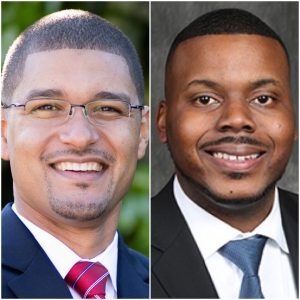Family
Summer Camp Fosters Female Camaraderie and Unity
WASHINGTON INFORMER — For the eighth consecutive summer, a group of elders will channel the spirit of Nannie Helen Burroughs, Anna Julia Cooper and other Black female education pioneers as they equip young ladies with the skills needed to navigate adolescence and womanhood.
By Sam P.K. Collins
For the eighth consecutive summer, a group of elders will channel the spirit of Nannie Helen Burroughs, Anna Julia Cooper and other Black female education pioneers as they equip young ladies with the skills needed to navigate adolescence and womanhood.
This process will unfold throughout June and July during the iThings 2 Collard Greens Summer Camp for Girls. For six weeks, more than a dozen young women will keep their smartphones out of reach as they receive lessons in knowledge of self, ancestral reverence and conflict resolution — all intended to prime them for a lifetime of service.
“This camp is showing our girls how to be of service to their higher selves and community. There’s no technology. They have to turn on their inner technology,” said Kathy English Holt, founder of the iThings 2 Collard Greens Summer Camp for Girls.
Holt started the iThings 2 Collard Greens Summer Camp for Girls in 2001 while battling a serious illness. During her bout, she read about Burroughs and Cooper and learned about a local all-girls boarding school that Burroughs founded in the early 20th century.
That story inspired Holt’s foray into youth enrichment, which manifested in the launch of the iThings 2 Collard Greens Summer Camp for Girls at the Davis Center in Northwest.
That year and every year since, participants in the program learned about altar work, dance, sewing, yoga and nutrition under the auspices of Beatrice Davis Williams, Frances Coles, Bernadine Watson, Joyce Pegues, Free Benjamin, Princess Thompson and others.
Veteran educator Cheryl Shoemaker will continue to serve as camp director as young ladies between the ages of 5 and 13 converging on the Kingsbury Center in Northwest study the 14th Amendment and explore the historical and current impact of Black women in U.S. politics.
“What I found is that when children don’t have anything to do, they get into a lot of mess and fall behind on their school work,” Holt said. “They cannot afford to be idle. Young people trying to babysit young people is also extremely dangerous. Summer should be a time to focus. The youth need to do altar work and spend time [learning about] themselves.”
On May 19, the iThings 2 Collard Greens Summer Camp for Girls will host a benefit concert at Peoples Congregational United Church of Christ in Northwest. Jazz bassist and Holt’s son Corcoran Holt, along with his band The Mecca, will headline this event to raise funds for the summer camp.
The iThings 2 Collard Greens Summer Camp for Girls rolls out amid what many consider treacherous times for Black women and girls.
Within the past few years, more than 75,000 Black women and girls across the country have gone missing in cases that haven’t been heavily publicized. Research from the African American Policy Forum also shows that Black girls often receive harsher treatment from school personnel and law enforcement officials than their counterparts.
In response what Holt described as the harsh language and demeaning decorum she recalled witnessing on public transportation, she molded the iThings 2 Collard Greens Summer Camp for Girls so that enrollees could connect with older women and eventually return the favor as camp counselors.
For Masai Oakes, a former camper and current camp counselor, such a model proved enriching, especially since she had all male siblings in her household.
Years after attending a weeklong retreat with her cohort in a rural South Carolina community. Oakes said she continues to embrace the love for drawing she fostered while in the iThings 2 Collard Greens Summer Camp for Girls.
“This was a camp to go to and feel empowered. Beforehand, I didn’t know or care that much about the importance of being a Black woman,” said Oakes, an 18-year-old college sophomore who lives in Northwest. “Going to this camp [helped me] see a lot of people like me and what we were capable of.
“It’s very important,” she said. “If someone wants a sense of community, the iThings 2 Collard Greens Summer Camp for Girls would be a great place for them.”
This article originally appeared in the Washington Informer.
Activism
Report Offers Policies, Ideas to Improve the Workplace Experiences of Black Women in California
The “Invisible Labor, Visible Struggles: The Intersection of Race, Gender, and Workplace Equity for Black Women in California” report by the California Black Women’s Collective Empowerment Institute (CBWCEI), unveiled the findings of a December 2024 survey of 452 employed Black women across the Golden State. Three-fifths of the participants said they experienced racism or discrimination last year and 57% of the unfair treatment was related to incidents at work.
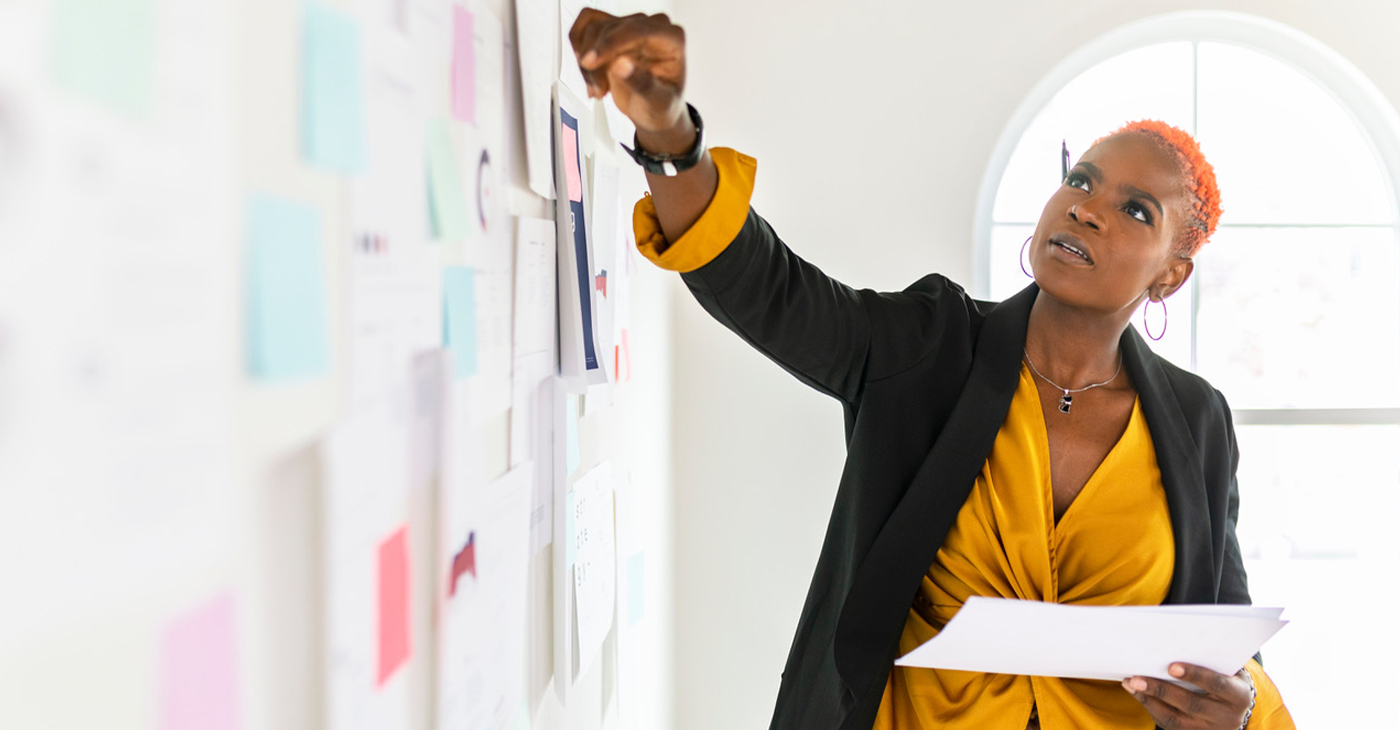
By McKenzie Jackson, California Black Media
Backed by data, a report released last month details the numerous hurdles Black women in the Golden State must overcome to effectively contribute and succeed in the workplace.
The “Invisible Labor, Visible Struggles: The Intersection of Race, Gender, and Workplace Equity for Black Women in California” report by the California Black Women’s Collective Empowerment Institute (CBWCEI), unveiled the findings of a December 2024 survey of 452 employed Black women across the Golden State. Three-fifths of the participants said they experienced racism or discrimination last year and 57% of the unfair treatment was related to incidents at work.
CBWCEI President and CEO Kellie Todd Griffin said Black women have been the backbone of communities, industries, and movements but are still overlooked, underpaid, and undervalued at work.
“The data is clear,” she explained. “Systemic racism and sexism are not just historical injustices. They are active forces shaping the workplace experiences of Black women today. This report is a call to action. it demands intentional polices, corporate accountability, and systemic changes.”
The 16-page study, conducted by the public opinion research and strategic consulting firm EVITARUS, showcases the lived workplace experiences of Black women, many who say they are stuck in the crosshairs of discrimination based on gender and race which hinders their work opportunities, advancements, and aspirations, according to the report’s authors, Todd Griffin and CBWCEI researcher Dr. Sharon Uche.
“We wanted to look at how Black women are experiencing the workplace where there are systematic barriers,” Todd Griffin told the media during a press conference co-hosted by Ethnic Media Services and California Black Media. “This report is focused on the invisible labor struggles of Black women throughout California.”
The aspects of the workplace most important to Black women, according to those surveyed, are salary or wage, benefits, and job security.
However, only 21% of the survey’s respondents felt they had strong chances for career advancement into the executive or senior leadership ranks in California’s job market; 49% felt passed over, excluded from, or marginalized at work; and 48% felt their accomplishments at work were undervalued. Thirty-eight percent said they had been thought of as the stereotypical “angry Black woman” at work, and 42% said workplace racism or discrimination effected their physical or mental health.
“These sentiments play a factor in contributing to a workplace that is unsafe and not equitable for Black women in California,” the report reads.
Most Black women said providing for their families and personal fulfillment motivated them to show up to work daily, while 38% said they were dissatisfied in their current job with salary, supervisors, and work environment being the top sources of their discontent.
When asked if they agree or disagree with a statement about their workplace 58% of Black women said they feel supported at work, while 52% said their contributions are acknowledged. Forty-nine percent said they felt empowered.
Uche said Black women are paid $54,000 annually on average — including Black single mothers, who averaged $50,000 — while White men earn an average of $90,000 each year.
“More than half of Black families in California are led by single Black women,” said Uche, who added that the pay gap between Black women and White men isn’t forecasted to close until 2121.
Bay Area
Five Years After COVID-19 Began, a Struggling Child Care Workforce Faces New Threats
Five years ago, as COVID-19 lockdowns and school closures began, most early educators continued to work in person, risking their own health and that of their families. “Early educators were called essential, but they weren’t provided with the personal protective equipment they needed to stay safe,” said CSCCE Executive Director Lea Austin. “There were no special shopping hours or ways for them to access safety materials in those early and scary months of the pandemic, leaving them to compete with other shoppers. One state even advised them to wear trash bags if they couldn’t find PPE.”
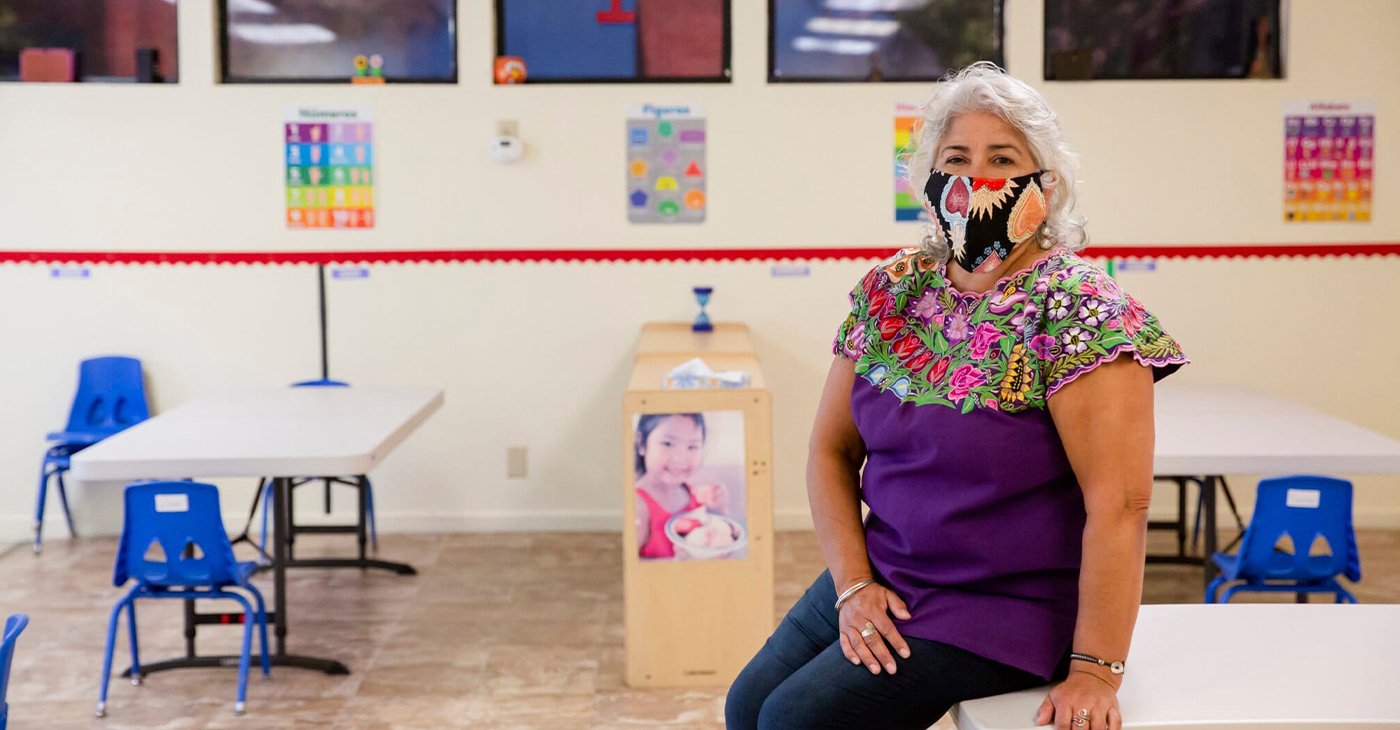
UC Berkeley News
In the first eight months of the COVID-19 pandemic alone, 166,000 childcare jobs were lost across the nation. Significant recovery didn’t begin until the advent of American Rescue Plan Act (ARPA) Child Care Stabilization funds in April 2021.
Today, child care employment is back to slightly above pre-pandemic levels, but job growth has remained sluggish at 1.4% since ARPA funding allocations ended in October 2023, according to analysis by the Center for the Study of Child Care Employment (CSCCE) at UC Berkeley. In the last six months, childcare employment has hovered around 1.1 million.
Yet more than two million American parents report job changes due to problems accessing child care. Why does the childcare sector continue to face a workforce crisis that has predated the pandemic? Inadequate compensation drives high turnover rates and workforce shortages that predate the pandemic. Early childhood educators are skilled professionals; many have more than 15 years of experience and a college degree, but their compensation does not reflect their expertise. The national median hourly wage is $13.07, and only a small proportion of early educators receive benefits.
And now a new round of challenges is about to hit childcare. The low wages paid in early care and education result in 43% of early educator families depending on at least one public support program, such as Medicaid or food stamps, both of which are threatened by potential federal funding cuts. Job numbers will likely fall as many early childhood educators need to find jobs with healthcare benefits or better pay.
In addition, one in five child care workers are immigrants, and executive orders driving deportation and ICE raids will further devastate the entire early care and education system. These stresses are part of the historical lack of respect the workforce faces, despite all they contribute to children, families, and the economy.
Five years ago, as COVID-19 lockdowns and school closures began, most early educators continued to work in person, risking their own health and that of their families. “Early educators were called essential, but they weren’t provided with the personal protective equipment they needed to stay safe,” said CSCCE Executive Director Lea Austin. “There were no special shopping hours or ways for them to access safety materials in those early and scary months of the pandemic, leaving them to compete with other shoppers. One state even advised them to wear trash bags if they couldn’t find PPE.”
The economic impact was equally dire. Even as many providers tried to remain open to ensure their financial security, the combination of higher costs to meet safety protocols and lower revenue from fewer children enrolled led to job losses, increased debt, and program closures.
Eventually, the federal government responded with historic short-term investments through ARPA, which stabilized childcare programs. These funds provided money to increase pay or provide financial relief to early educators to improve their income and well-being. The childcare sector began to slowly recover. Larger job gains were made in 2022 and 2023, and as of November 2023, national job numbers had slightly surpassed pre-pandemic levels, though state and metro areas continued to fluctuate.
Many states have continued to support the workforce after ARPA funding expired in late 2024. In Maine, a salary supplement initiative has provided monthly stipends of $240-$540 to educators working in licensed home- or center-based care, based on education and experience, making it one of the nation’s leaders in its support of early educators. Early educators say the program has enabled them to raise wages, which has improved staff retention. Yet now, Governor Janet Mills is considering cutting the stipend program in half.
“History shows that once an emergency is perceived to have passed, public funding that supports the early care and education workforce is pulled,” says Austin. “You can’t build a stable childcare workforce and system without consistent public investment and respect for all that early educators contribute.”
The Center for the Study of Childcare Employment is the source of this story.
Activism
Ed Chief Thurmond Visits Southern California Schools Fires Impacted
“Schools are the heartbeat of any community’s ability to recover as they provide stable and safe learning spaces for children,” Thurmond said. “That’s why our team has had boots on the ground since the beginning of this tragedy, and we are committed to remaining side-by-side with local leaders to assist in the recovery.”
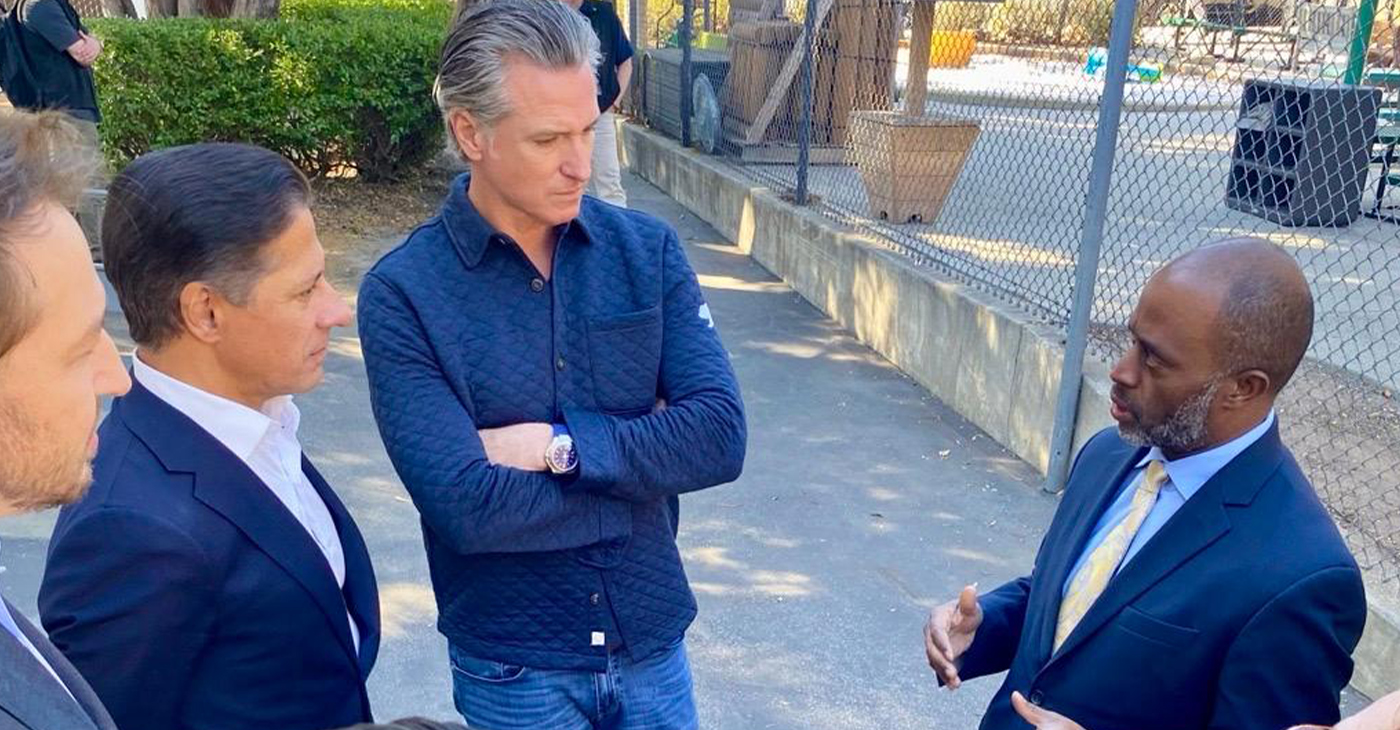
Tanu Henry, California Black Media
State Superintendent of Public Instruction Tony Thurmond last week visited several school communities in Southern California that have been severely impacted by wildfires.
His visit aimed to assess the damage, provide support, and secure essential resources for the recovery process. As wildfires continue to pose a significant threat to various regions, Thurmond’s says his actions reflect the commitment of the California Department of Education (CDE) to ensuring the safety and well-being of students, educators, and their families.
“Schools are the heartbeat of any community’s ability to recover as they provide stable and safe learning spaces for children,” Thurmond said. “That’s why our team has had boots on the ground since the beginning of this tragedy, and we are committed to remaining side-by-side with local leaders to assist in the recovery.”
During his visit, Thurmond met with local school officials, teachers, and students to understand their immediate needs and long-term concerns. He expressed his commitment to fighting for people affected by the disaster and assured them of the state’s unwavering support. Thurmond also emphasized the importance of mental health services, particularly for students who have experienced trauma due to the wildfires.
Thurmond announced that he has secured financial and logistical assistance to aid in the rebuilding and restoration of school facilities. This includes funding for temporary classrooms, educational materials, and infrastructure repair. The CDE says its goal is expedite the recovery process and minimize disruptions to students’ education.
Earlier in the week, Thurmond finalized a partnership between the CDE and Airbnb to provide short-term housing for school staff in the Pasadena Unified School District (PUSD).
The CDE has also partnered with the SupplyBank.org to collect and distribute critical resources to school communities. A similar agreement with curriculum providers and tech manufacturers will lead on the replacement of school materials damaged by the fires.
-

 Activism4 weeks ago
Activism4 weeks agoOakland Post Endorses Barbara Lee
-

 Activism4 weeks ago
Activism4 weeks agoOakland Post: Week of March 28 – April 1, 2025
-

 Activism3 weeks ago
Activism3 weeks agoOakland Post: Week of April 2 – 8, 2025
-

 #NNPA BlackPress3 weeks ago
#NNPA BlackPress3 weeks agoTrump Profits, Black America Pays the Price
-

 Activism2 weeks ago
Activism2 weeks agoOakland Post: Week of April 9 – 15, 2025
-

 #NNPA BlackPress3 weeks ago
#NNPA BlackPress3 weeks agoHarriet Tubman Scrubbed; DEI Dismantled
-

 #NNPA BlackPress3 weeks ago
#NNPA BlackPress3 weeks agoLawmakers Greenlight Reparations Study for Descendants of Enslaved Marylanders
-

 #NNPA BlackPress3 weeks ago
#NNPA BlackPress3 weeks agoTrump Targets a Slavery Removal from the National Museum of African-American History and Culture




